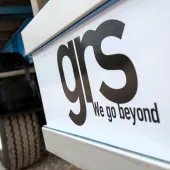Industry confidence high on infrastructure

But some concern that not enough being done to meet UK needs over the longer term
AS the UK embarks on some of its biggest infrastructure projects in a generation, including HS2 and a £15 billion road-building programme, senior business leaders from the construction industry are in a buoyant mood regarding the UK’s infrastructure outlook.
According to the Infrastructure Outlook Report, based on research from Ipsos Mori and commissioned by Tarmac, two-thirds (68%) of respondents are confident about the UK’s overall infrastructure outlook over the next 12 months. However, two-thirds (66%) of those surveyed agree that not enough is being done to meet the UK’s infrastructure requirements.
‘It’s great to see that the construction industry is in a confident mood, but there is no room for complacency,’ said Tarmac chief executive Cyrille Ragoucy (pictured). ‘Challenges remain in meeting the UK’s infrastructure requirements and there is concern about the delivery in the years ahead. However, the industry signals a clear intent to work more collaboratively with all parties to deliver a step change in infrastructure for the UK.’
The construction industry is calling for a range of measures to help improve the UK’s infrastructure, including cutting red tape (83%), increasing government investment (73%), providing greater certainty on government spending (71%) and unlocking private investment (70%).
More than three-quarters (77%) of those respondents who think the Government should spend more on new economic infrastructure projects in the next five years believe that the private sector should lead funding for such projects, more than double the levels thinking other sources should be involved, such as government borrowing (37%), sovereign wealth funds (32%) or increased taxation (31%).
These findings highlight the private sector’s critical role in plugging the infrastructure funding gap and in helping to tackle the UK’s historic under-investment.
Tarmac’s report confirms that more agree (48%) than disagree (26%) that most other European countries, especially Germany and France, are ahead of the UK in terms of investment and development of both economic and social infrastructure. Even more agree (64%) than disagree (14%) that China and other leading global markets, the US in particular, are ahead of the UK in infrastructure investment and development.
Nearly four-fifths (78%) of participants also agree that the time taken for infrastructure projects could be reduced if there was greater collaboration across supply chains. Such collaboration – both public and private – could be facilitated via a Department for Infrastructure, with a clear majority (72%) supporting the creation of such a department.
In other findings, there is a greater overall level of support for the maintenance of local roads and upgrading of the strategic road network (motorways and A-roads) outside London as transport infrastructure projects, than for HS2, HS3, Crossrail 2 or adding runways at either Heathrow or Gatwick.
Regionally, there is a clear disparity between London and the South East versus the rest: 72% of survey participants first mention London (51%) or the South East (21%) as the regions that will see the most being spent on infrastructure projects in 2016.
This compares with very few first mentions for other regions in the UK, with the North West appearing next with 5% followed by Scotland (4%), the South West (3%), the West Midlands (3%) and the North East (2%). Yorkshire & Humberside and East Anglia are mentioned first only by 1% and none mentioned the East Midlands, Wales and Northern Ireland first.
Similarly, two-thirds believe that London (50%) and the South East (16%) benefit the most from current and confirmed future government infrastructure spend. This compares with only 4% for the North West and 3% for both Scotland and the North East, and 2% for the West Midlands. East Anglia, Northern Ireland and Yorkshire & Humberside feature at the bottom, with none of those surveyed thinking they will benefit the most.
Against a backdrop of efforts to improve regional imbalances and spur local growth, there is strong support for local government being able to decide about infrastructure projects locally. Almost three-quarters (72%) agree with this, with only 6% strongly disagreeing. Furthermore, three in five (61%) are confident that devolution of local government will help in the delivery of local infrastructure projects.









